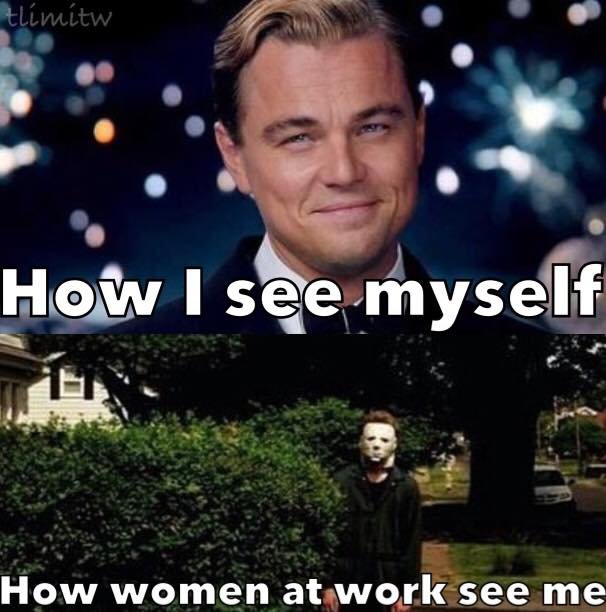I wish I’d learned this in college
Over the next month, millions of people will become university graduates.
I’m sure many of them have tried to do as much as they can to prepare for the working world they are about to enter – just as I did 20 years ago.
But when I think back to my days at university, there is one thing that four years of studying didn’t prepare me for –
The harsh realities of the business world.
There was no course that taught me what it would be like to work with (or for) someone who was incompetent – or a creepy sexual harasser.
There was no lesson that explained that the “meritocracy” some companies claimed to have meant that the boss’s nephew (or the biggest sycophant) would get the job over someone more qualified.
And no professor ever sat me down and said, “Beth, sometimes people do all the right things – and still get screwed.”
When I entered the workforce, I came armed with ambition and a “can-do” attitude.
I was optimistic – and I was also naive (common traits of creative people – and girls from a small town).
I believed the only way to climb the ladder was to be a model employee.
Work harder. Be smarter. Be nice and helpful – someone people would want on their teams.
Plenty of my friends believed the same thing.
What we didn’t know – but would soon learn – is that no matter how great you are at your job, you can still be let go.
Without warning.
Without cause.
And without care.
You can sacrifice your evenings and weekends, your vacations, your family and friendships, even your health – and one day, it won’t matter.
That doesn’t mean you shouldn’t work hard and be helpful, it’s just useful knowing that it might not create strong enough armour to protect you.
Your family will remember what you sacrificed, but your employer probably won’t
I was just 22 when I saw how cold the corporate world could be.
My friend Sarah was promoted to become the assistant to the head writer on a TV show. It wasn’t a glamorous job, but it was a step up, and Sarah did all the menial tasks it required with a smile on her face.
But less than a year later, the head writer was fired.
And two weeks later, so was Sarah.
The head writer lost a job that came with a seven-figure salary. Sarah barely made enough money to pay her rent in LA.
I couldn’t understand it.
Sarah had done everything right. She was a hard worker and had a good attitude – everybody liked her.
And her loyalty was to the show – not the head writer.
But it didn’t matter.
She was out – and she was devastated.
Not long after, I witnessed how the company I worked for handled downsizing, when they fired a nice administrative assistant named Susan.
A security guard stood outside Susan’s cubicle, watching as she packed her kids’ photographs and drawings into a box that had held photocopy paper just minutes earlier.
Susan was normally so quiet, but that day everyone in the office heard the sound of her sobs and sniffles as she packed her belongings. The security guard then escorted her out of the building like a criminal.
I was 23, and had never seen anything like this. I wondered what Susan had done wrong.
It turned out the answer was nothing – the boss just needed to cut a position.
And Susan was the sacrifice.
But that moment foreshadowed what I’d see more of when I moved to London years later.
I spent over a decade working in financial services and saw more “cost cutting exercises” than I can remember – often during times when the bank was reporting profits in the billions.
I saw nice people lose their jobs.
I saw smart people lose their jobs.
I saw hard workers lose their jobs.
Sometimes their only fault was being unpopular with someone more powerful.
Sometimes they were more popular than someone more powerful.
Sometimes they were too good – too “experienced” (read: older and more expensive) and their job would be given to someone junior as a “stretch opportunity.”
I didn’t learn about maternity discrimination until I was in my 30s – when I started noticing how many women who went on maternity leave were never seen in the bank again.
Companies may say they’re a “family”, but when a family grows in the real world, you make more room at the table for them.
Families don’t say, “Well, since Mark married into the family this year, that means Uncle Jack has to go.”
Families make room for each other
And that’s what I want people to know.
Understanding that these situations are realities of the workforce is important – and my hope is that the next generation can learn from the mistakes of past generations and make things better.
I’d still encourage people to follow the advice I was given: work hard, be kind, and keep learning.
But I’d also tell them three more things:
1. A company will not love you, but people in your life will. Know who your real family and friends are, and invest time in those relationships.
2. You are responsible for your career – so be your own advocate.
3. And be nice to the robots. You may be working for one sooner than you think.
__________________________________________
Beth Collier loves writing, pop culture, and finding business lessons from Survivor.
She also loves helping companies, leaders, and teams improve their communication (and creativity and leadership) through consulting, coaching, and workshops.
Her clients benefit from Beth’s global corporate experience, Midwestern practicality and enthusiasm, and an endless supply of pop culture references.
To find out how Beth can help you become a more confident, creative, and compelling leader – or improve communication in your company – visit www.beth-collier.com or drop her a line at beth@beth-collier.com
__________________________________________
Want a dose of positivity and fun in your inbox?
Sign up to receive my free newsletter, Curious Minds.
Each week you'll get insights that mix curiosity with business, history, or pop culture.







